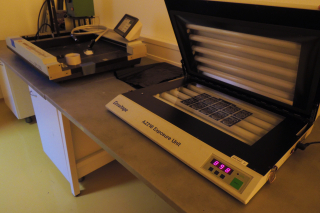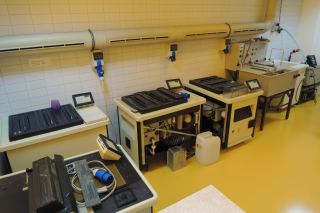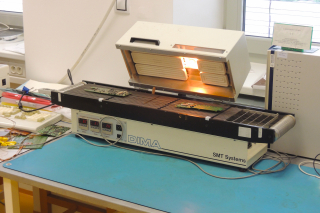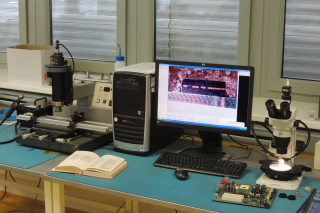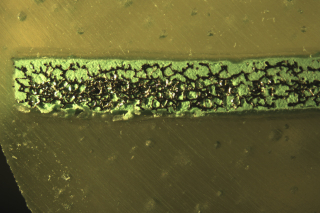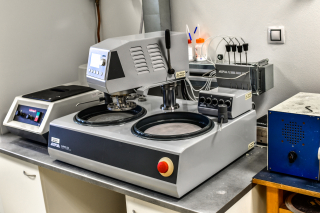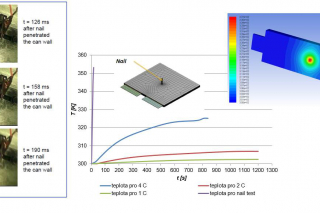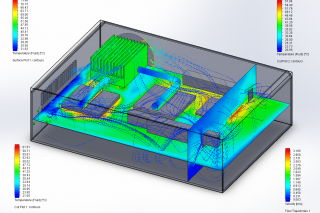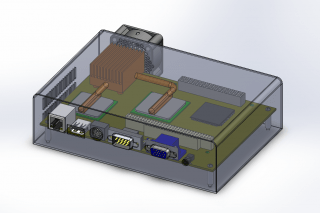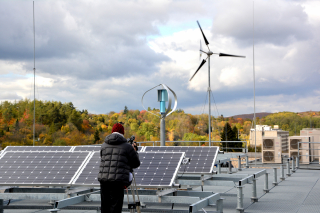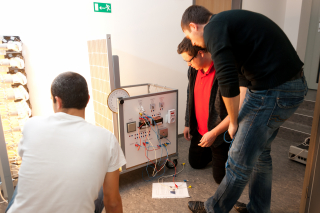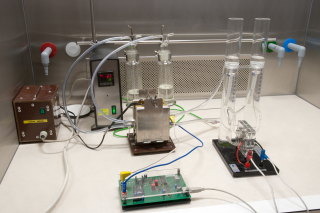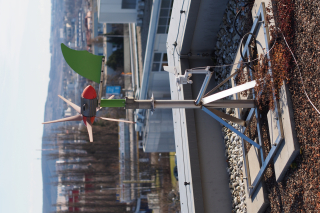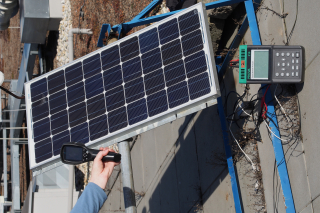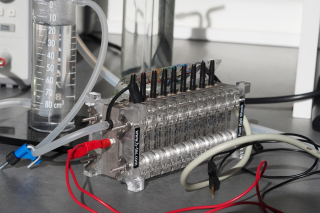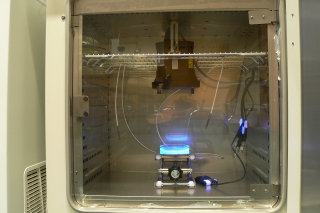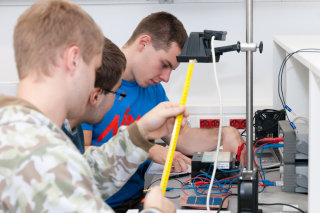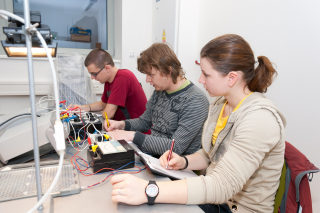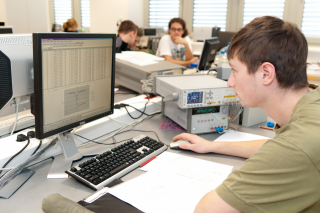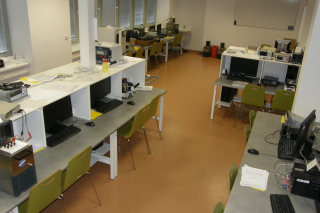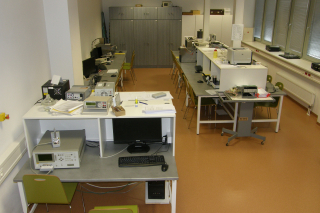Lecture laboratories of the Department of Electrical and Electronic Technology
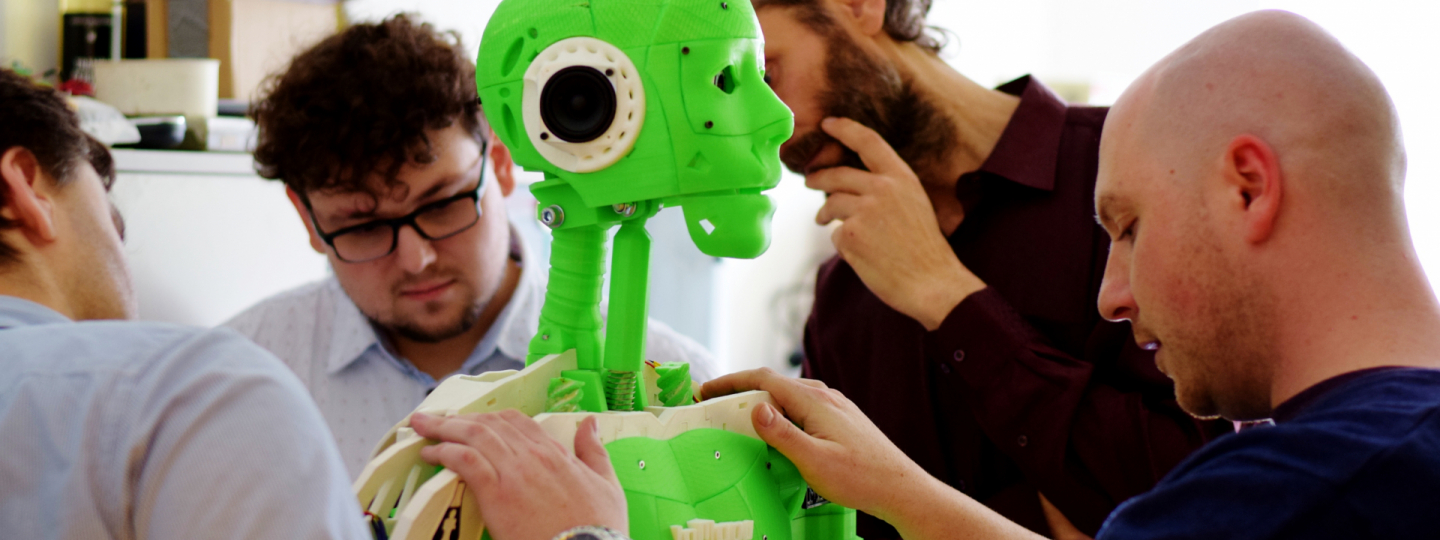
Tuition is held in modern laboratories with top-level equipment at our university campus. Take a look at what our students use not only during their laboratory practice but also while working on their theses.
PCB interconnecting and mounting structures laboratory
Students go through the whole manufacturing process of a printed circuit board (PCB). They try different technologies and they learn about their advantages and limitations. The laboratories are divided into three parts:
Surface mounting and printed circuits laboratory
It is possible to state the reliability of soldered joints, analyze defects of populated or unpopulated boards including microsection preparation for optical microscopy.
Soldering laboratory
Here we deal with the reliability of soldered joints, we test the solderability of surface PCB treatings and components in a protective atmosphere.
Photo process laboratory
Tests of conductive structures on flexible materials and tests of photolithography techniques for special applications take place in this laboratory.
Design systems and simulation laboratory
Students get to know modern printed circuit design systems and connected technical documentation for real manufacturing. This laboratory is also used for 3D modeling tuition where students learn basic and advanced parametric modeling and technical documentation with the possibility to obtain a SolidWorks certificate. We have also advanced courses where students learn modern computer simulation methods. They perform comprehensive simulations on 3D models of electric devices which include electric and magnetic field, temperature, and mechanical processes both stationary and in the time domain. Students, therefore, obtain practical experience with modern design methods of electric equipment and its optimization.
Renewable energy sources laboratories
These laboratories are aimed at renewable energy sources and renewable energy utilization. There are workstations focused on all renewable energy sources: wind, solar, geothermal energy, and various ways to store energy. Students will try to store energy not only in classic batteries but also using supercapacitors, a flywheel, or a change of state. Students will understand renewable energy sources, energy accumulation and they will know the advantages and disadvantages of respective systems.
Electrical technology materials and diagnostic laboratories
Students obtain knowledge about different materials used in electrical technology and power engineering in these laboratories. The laboratories include workstations aimed at different electrical material properties. Students learn how to analyze material behavior in electric and magnetic fields. They learn how to differentiate groups of electric technology materials, for example, dielectric and insulation materials, semiconductive, resistive, and magnetic materials. They will know their structure, composition, and key characteristics. Students will also know various effects that are used in electrical technology, for example, the Seebeck effect and other temperature- or frequency-dependent effects.
